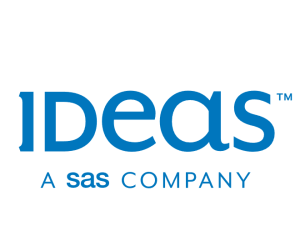Revenue management is a topic no hotel can ignore anymore. In this article, find out how to enhance your guest experience and drive business growth for your accommodation, with technology solutions and services tailored to the hospitality industry.
7 mins readA carefully crafted pricing strategy allows hotels to optimize revenue generation by appropriately aligning rates with demand patterns, seasonality, and market dynamics. By accurately assessing their value proposition, market segment preferences, and competitors’ pricing, hotels can strike the right balance between attracting guests and maximizing revenue per available room (RevPAR).
However, hoteliers must not overlook a very crucial factor; the fact that today the advancements in the technology landscape are becoming more and more important in increasing profits. In fact, the role of AI in revenue management is becoming paramount, as it will play a pivotal role in optimizing pricing strategies. These systems utilize sophisticated algorithms to analyze vast amounts of data, helping hotels to create a seamless and convenient experience for guests.
Different pricing strategies for hotels and how they apply in various market conditions

Different pricing approaches are vital for the success of hotels and their ability to maximize revenue. The choice of pricing strategy depends on various factors, including market conditions and the hotel’s objectives. Here, we explore 3 common pricing strategies and their applicability in different market conditions.
- Seasonal Pricing: This strategy involves adjusting prices based on seasonal demand fluctuations. Hotels in tourist destinations often charge higher rates during peak seasons and lower rates during off-peak periods. This approach allows hotels to optimize revenue by capitalizing on high demand while attracting customers during slower periods.
- Dynamic Pricing: Dynamic pricing leverages real-time data and market demand to set flexible prices. Through sophisticated algorithms, hotels can adjust rates based on factors like occupancy levels, competitor pricing, and customer behavior. This strategy is particularly effective in highly competitive markets where demand fluctuates rapidly.
- Value-based Pricing: Value-based pricing focuses on the perceived value of the hotel experience. It involves setting prices based on the hotel’s unique features, amenities, and services. By understanding customer preferences and willingness to pay, hotels can price their offerings to reflect their value proposition accurately.
However, every modern hotelier should take into account the current technology landscape and how it affects their profit. Namely, AI can greatly help hotels with their revenue management, as it provides valuable insights. By analyzing pricing patterns and markets, AI technology enables hotels to make data-driven pricing decisions in real time, leading to optimized revenue. Additionally, AI can automate the pricing process, freeing up staff to focus on other essential tasks.
What is more, technology also facilitates personalized pricing, allowing hotels to offer tailored rates to individual customers based on their preferences, loyalty, and past booking behavior. This level of customization enhances customer satisfaction and loyalty, which leads to higher profitability.
*Sponsored
IDeaS: Unrivaled revenue management solutions for your business
IDeaS, a SAS company, is the world’s leading provider of revenue management software and services. With more than 30+ years of expertise, IDeaS delivers revenue science to more than 30,000 properties in 154 countries. Combining industry knowledge with innovative data-analytics technology, IDeaS creates sophisticated yet simple ways to empower revenue leaders with precise, automated decisions they can trust. Results delivered. Revenue transformed. Discover greater profitability at ideas.com.
Top 3 most important factors for hotels to consider when setting prices

When setting prices, hotels must consider several factors to ensure their pricing strategy is effective and aligns with market conditions. Of course, the AI revolution, in combination with the overall digital advancements, has created a new reality, in which every hotel should adapt.
- Market Demand: Understanding the demand patterns and customer behavior is essential. Hotels need to assess the level of demand for their location, including peak and off-peak seasons, holidays, and special events, and adjust their prices accordingly. And what better and faster way to do that than AI? These algorithms can use historical and contextual data to forecast future demand accurately, by considering factors like seasonality, events, holidays, and even weather conditions. As a result, AI technology provides hotels with predictions and insights into expected demand fluctuations, helping them with their revenue management.
- Competition: Analyzing the pricing strategies of competitors is vital. Hotels need to monitor the rates offered by similar establishments in the vicinity and consider their value propositions. This analysis helps hotels position themselves competitively and set prices that attract customers while maximizing profitability.
- Seasonality: Seasonal fluctuations significantly impact hotel pricing. Hotels in popular tourist destinations may experience high demand during peak seasons and lower demand during off-peak periods. Adjusting prices based on seasonality allows hotels to capitalize on high demand and maintain competitive rates during slower periods.
If you have a hotel and want to enhance its competitiveness in the market, then considering the aforementioned factors under the AI spectrum is vital in order to make data-driven decisions that will increase your profit.
How dynamic pricing & revenue management systems optimize pricing decisions for hotels

Being an important part of hospitality’s technology landscape, dynamic pricing and revenue management systems utilize real-time data and advanced algorithms to adjust prices dynamically, with the aim of increasing profit. Considering factors such as demand, competition, market conditions, dynamic pricing, and revenue management systems, along with AI, can enhance every hotel’s revenue management.
- Real-time Data Analysis: Dynamic pricing systems continuously monitor and analyze real-time data such as occupancy rates, booking patterns, competitor prices, and market trends. By processing this information rapidly, hotels can make timely pricing decisions to maximize revenue. AI algorithms can efficiently handle a large volume of data and extract valuable insights that aid in accurate pricing strategies.
- Demand Forecasting: AI-powered revenue management systems use historical data, market trends, and other relevant factors to forecast future demand. This helps hotels anticipate fluctuations in demand and adjust prices accordingly. By leveraging AI, these systems can generate more accurate demand forecasts, leading to optimized pricing decisions.
- Competitive Pricing: Technology enables dynamic pricing systems to monitor competitor prices and adjust hotel rates accordingly. AI algorithms can quickly analyze and compare prices across multiple platforms, providing hotels with real-time insights into competitive pricing strategies. This allows hotels to fine-tune their revenue management, setting prices that attract customers while maintaining profitability.
- Personalization: AI technology allows dynamic pricing systems to personalize prices based on individual customer data and preferences. By leveraging AI algorithms, hotels can offer tailored pricing and promotions to specific customer segments, enhancing customer satisfaction and maximizing revenue.
- Automation and Optimization: Dynamic pricing and revenue management systems automate the pricing process, reducing manual effort and human error. Through special AI algorithms, hotels can optimize prices based on predefined strategies and goals, ensuring consistent and effective pricing approaches across various market conditions.
Dynamic pricing and revenue management systems are two very powerful tools, which when empowered by AI and technology can be a great asset for hotels in maintaining competitiveness in the ever-changing market landscape.
Conclusion
In conclusion, adopting a strategic pricing approach is essential for hotels to maximize revenue and profitability. By carefully considering market demand, competition, seasonality, and other relevant factors, hotels can set prices that attract customers while optimizing their financial performance. Additionally, the new technological landscape, particularly AI, plays a pivotal role in maximizing revenue management, enabling hotels to increase their profits.
The new powers that the digital era has unlocked provide automation and optimization capabilities, streamlining the pricing process and reducing manual effort. These advancements improve hotels’ overall operational efficiency to maintain a competitive edge in the hospitality industry. However, one thing is certain. In such a competitive market, only hotels that will adapt and embrace new technologies and AI in their pricing approaches will withstand market fluctuations, meet customer expectations, and achieve long-term success in maximizing revenue and profitability.







